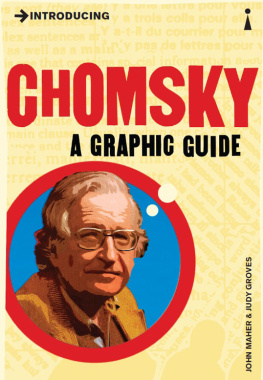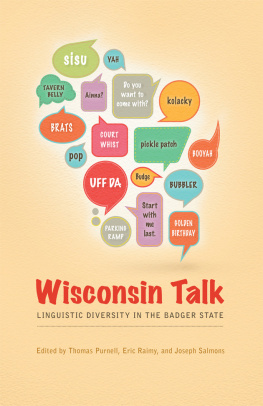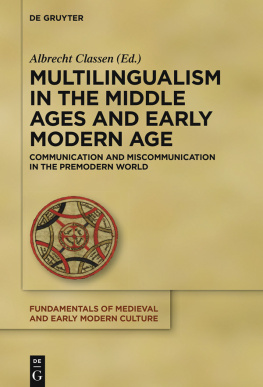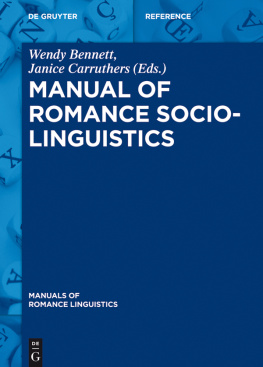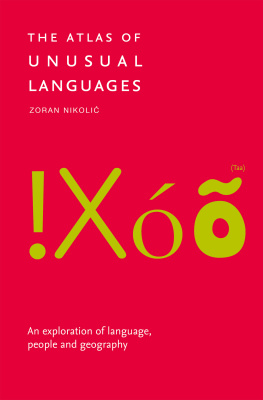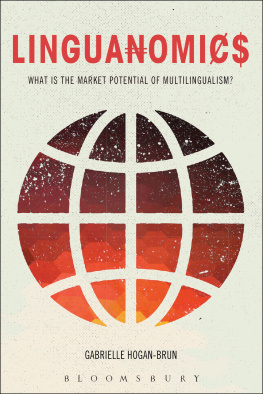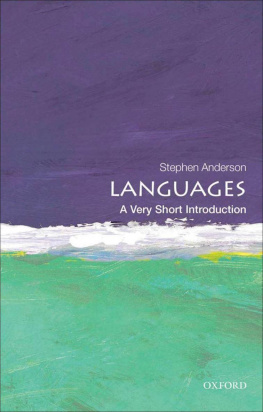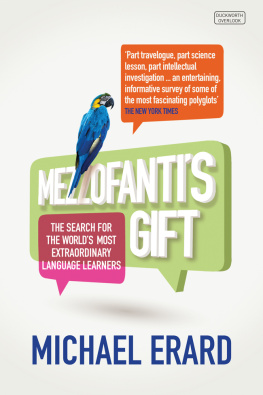John C. Maher - Multilingualism: A Very Short Introduction (Very Short Introductions)
Here you can read online John C. Maher - Multilingualism: A Very Short Introduction (Very Short Introductions) full text of the book (entire story) in english for free. Download pdf and epub, get meaning, cover and reviews about this ebook. year: 2017, publisher: Oxford University Press, genre: Home and family. Description of the work, (preface) as well as reviews are available. Best literature library LitArk.com created for fans of good reading and offers a wide selection of genres:
Romance novel
Science fiction
Adventure
Detective
Science
History
Home and family
Prose
Art
Politics
Computer
Non-fiction
Religion
Business
Children
Humor
Choose a favorite category and find really read worthwhile books. Enjoy immersion in the world of imagination, feel the emotions of the characters or learn something new for yourself, make an fascinating discovery.
- Book:Multilingualism: A Very Short Introduction (Very Short Introductions)
- Author:
- Publisher:Oxford University Press
- Genre:
- Year:2017
- Rating:5 / 5
- Favourites:Add to favourites
- Your mark:
Multilingualism: A Very Short Introduction (Very Short Introductions): summary, description and annotation
We offer to read an annotation, description, summary or preface (depends on what the author of the book "Multilingualism: A Very Short Introduction (Very Short Introductions)" wrote himself). If you haven't found the necessary information about the book — write in the comments, we will try to find it.
Esperanto? And what makes a person bilingual? Multilingualism, language diversity in society, is a perfect expression of human plurality. About 6,500-7,000 languages are spoken, written, and signed throughout the linguistic landscape of the world by people who communicate in more than one language
(at work, or in the family or community). Many origin myths, like Babel, called it a punishment but multilingualism makes us who we are and plays a large part of our sense of belonging. Languages are instruments for interacting with the cultural environment and their ecology is complex. They can
die (Tasmanian), or decline then revive (Manx and Hawaiian), reconstitute from older forms (modern Hebrew), gain new status (Catalan and Maori) or become autonomous national languages (Croatian). Languages can even play a supportive and symbolic role as some territories pursue autonomy or
nationhood, such as in the cases of Catalonia and Scotland.
In this Very Short Introduction John C. Maher shows how multilingualism offers cultural diversity, complex identities, and alternative ways of doing and knowing to hybrid identities. Increasing multilingualism is drastically changing our view of the value of language, and our notion of the part
language plays in national and cultural identities. At the same time multilingualism can lead to social and political conflict, unequal power relations, issues of multiculturalism, and discussions over national or official languages, with struggles over language rights of local and indigenous
communities. Considering multilingualism in the context of globalization, Maher also looks at the fate of many endangered languages as they disappear from the world.
ABOUT THE SERIES: The Very Short Introductions series from Oxford University Press contains hundreds of titles in almost every subject area. These pocket-sized books are the perfect way to get ahead in a new subject quickly. Our expert authors combine facts, analysis, perspective, new ideas, and
enthusiasm to make interesting and challenging topics highly readable.
John C. Maher: author's other books
Who wrote Multilingualism: A Very Short Introduction (Very Short Introductions)? Find out the surname, the name of the author of the book and a list of all author's works by series.


